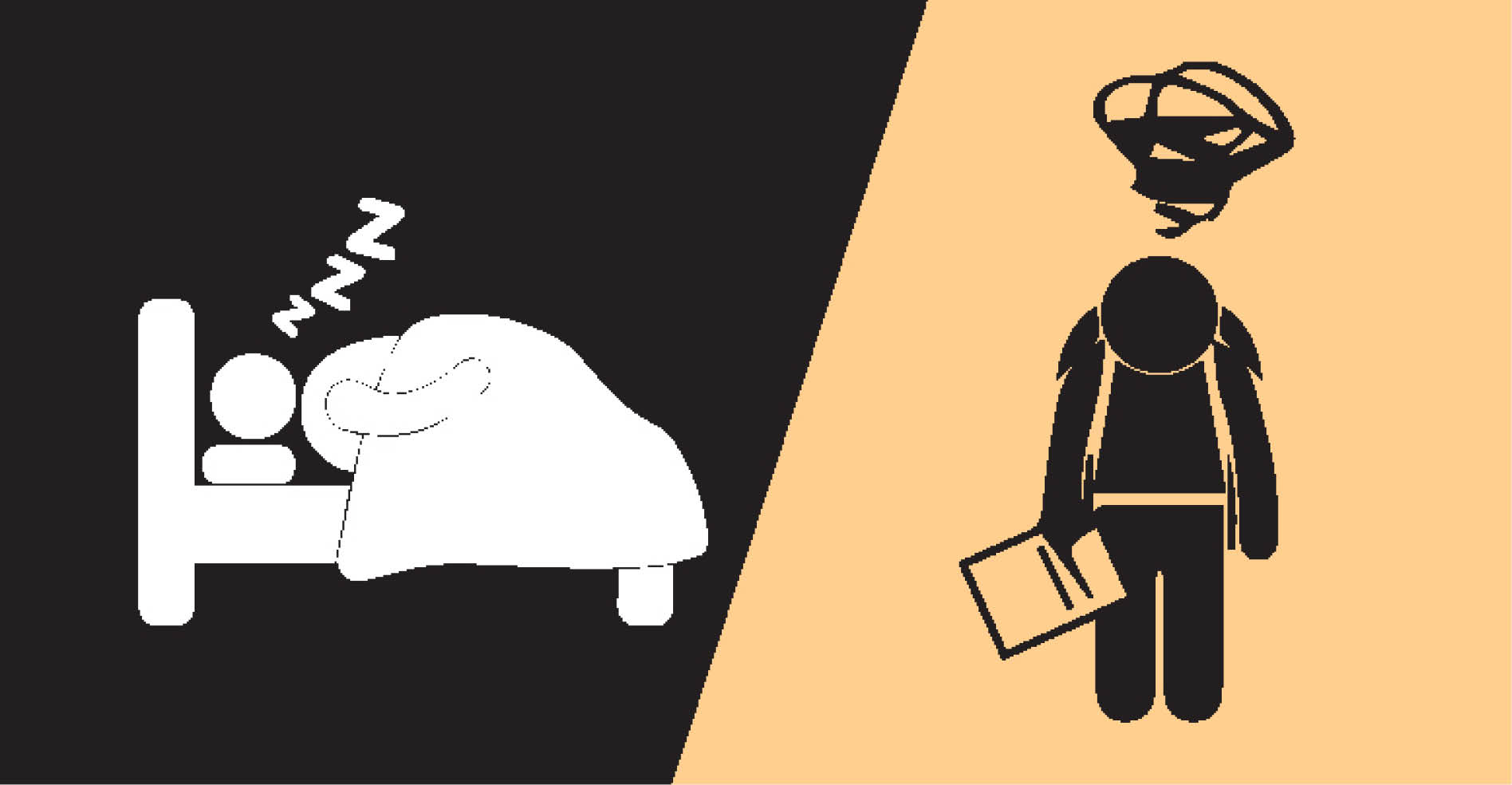For centuries, parents have been worried about their children’s performance in school; and there are many factors that can contribute to poor school performance. However, it appears that there is a new culprit in town – or at least, a newly discovered one: snoring.
But let’s take one step back.
In 1964 an American secondary school student named Randy Gardner broke the world record by staying without sleep for 11 days and 24 minutes. During that time, he suffered from memory glitches, mood problems, hallucinations, inability to identify objects and recalling words.
- FG, States, LGAs share N681.330bn revenue for March
- Students lament state of clinics in Nigerian universities
However, as we learned from Mathew Walker’s book “Why We Sleep,” you don’t have to stay awake for days before suffering from the wrath of sleep deprivation. The negative effects are many. It is bad for cardiovascular, reproductive and immune health – and more relevant to our topic of today – cognition and learning.
Further, Dr. Mathew Walker and a colleague published a paper in 2019 titled “sleep loss causes social withdrawal and loneliness.” Which means loss of sleep has social implications such as being suspicious of people and feeling less comfortable when they stand close to you because the ability to understand their intentions has become impaired.
Another instructive insight from Dr. Walker’s publications is that you cannot recover sleep. For instance, you can’t make up for three nights of sleeping poorly by sleeping for 13 hours on the fourth day.
Therefore, if you cannot recover sleep, then sleep quality must be very important for us and our children even if they are getting the required eight hours of sleep per night.
Among other things, snoring has been fingered as one of the culprits that steal from quality sleep. Research has also correlated snoring with poor academic performance.
A study in 2003 by Michael S. Urschitz et. al grouped 1,144 primary school children into either always, frequently, occasionally and never snoring.
They found that “snoring always” was significantly correlated with poor academic performance in math, science and spelling; and “snoring frequently” was associated with poor academic performance in mathematics and spelling.
A similar study from 2001 by Gozal and Pope found that early childhood snoring was associated with poor academic performance in middle school (ages 13 to 14).
Another study from 1994 titled “Natural history of snoring and related behaviour problems between the ages of 4 and 7 years” showed that “daytime sleepiness, hyperactivity, and restless sleep were all significantly more common in the habitual snorers than in those who never snored.”
Yet another paper in 2005 by Ronald D. Chervin and colleagues noted that “snoring predicts hyperactivity four years later.”
There are other studies that showed that snoring was correlated with headache, high blood pressure, secretion of less growth hormone, heart attack and stroke.
What causes snoring and how can one minimize it?
What happens during snoring is that airflow is partially blocked by tissues in the airway. Snoring is a measure of sleep quality because if you don’t breathe well, you don’t sleep well.
In 2012, Ravesloot et. al cited Robin’s 1948 “plea for more serious consideration of snoring,” Robin noted that “sleeping on one’s back is considered a common cause of snoring … many persons snore only when on their backs.”
Therefore, snoring can be managed by the posture you take while sleeping. It is called positional therapy (PT).
Should you sleep on your back, stomach or on the sides?
Charles Nunn said that one of the common features of the great apes and humans is that we make beds for sleeping in every night. And instructively, when I checked pictures of sleeping apes on Google, I found most of them sleeping on their sides.
A 2015 study showed that orangutans have deeper, more efficient sleep than babboons because the orangutans spent three times more sleeping on their sides than on their backs.
In humans, sleeping on the stomach too is not efficient, “sleeping on your stomach is not good for the neck because the neck has to be turned 45 degrees as well as putting excessive stress on the lower back,” Dr. Alan Mandell said.
And what is the best side to sleep on, left or right?
“Studies have shown that sleeping on your right hand side, is good for your heart. Unless you’re pregnant, in which case try to fall sleep on your left. Either way avoid sleeping on your front or back” says Richard Wiseman in his book, “Night School.”
Also, “…sleeping on the left side can put a strain on internal organs like the liver, lungs, and stomach…”medicaldaily.com.
And 1400 years ago, Prophet Muhammad (SAW) said: “When you go to bed, do wudoo’ [ablution] as if for prayer, then lie down on your right side…” (Narrated by al-Bukhaari, al-Wudoo’, 239).
Therefore, teach your children to lie on their sides, preferably on the right side to minimize snoring and reduce risk of poor performance.
Ibraheem Dooba is the author of “The Social Science of Muhammad (SAW): Actionable Strategies to be Happy Here and the Hereafter.”

 Join Daily Trust WhatsApp Community For Quick Access To News and Happenings Around You.
Join Daily Trust WhatsApp Community For Quick Access To News and Happenings Around You.


